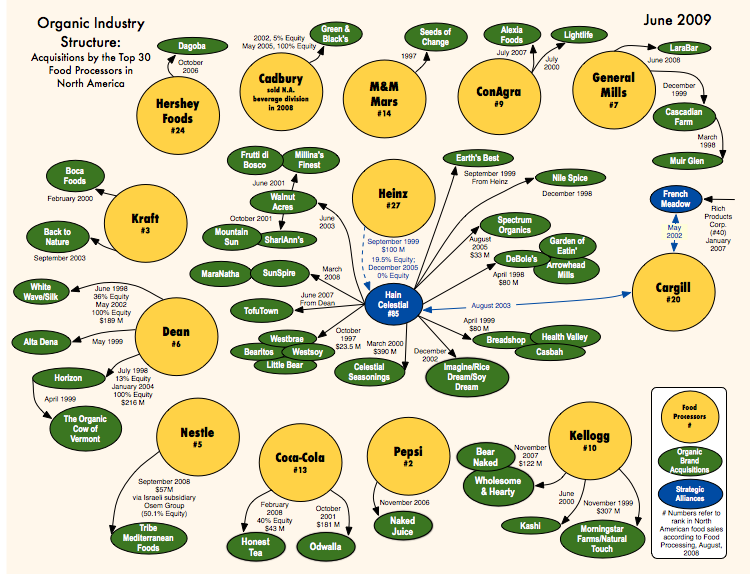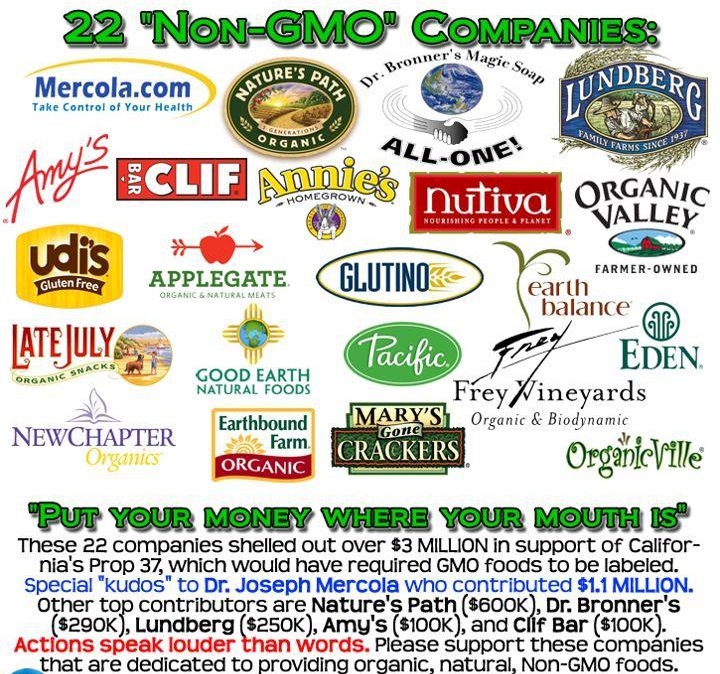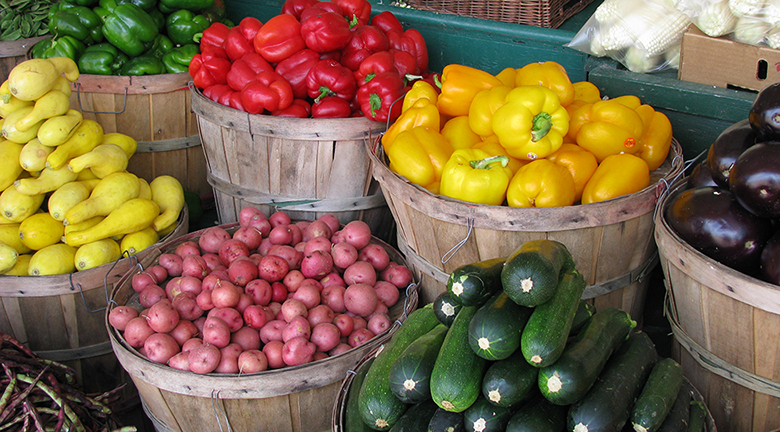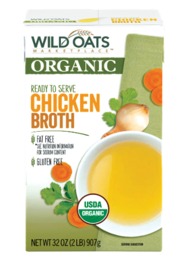In recent years, there has been a significant shift in consumer preferences towards healthier and more sustainable food choices. This has led to the rise in popularity of organic food companies. People are becoming more conscious about what they eat and the impact it has on their health and the environment.
As a result, investing in organic food companies has become an attractive option for those looking to make smart investment choices.
The Growing Popularity of Organic Food
Organic food has become increasingly popular due to several key factors. Firstly, consumers are now more aware of the potential harm associated with conventionally grown foods. These products often contain synthetic pesticides, herbicides, and GMOs that can negatively impact human health.
In contrast, organic food is produced without these chemicals and modifications, promoting a healthier option.
Secondly, there is a growing concern for environmental sustainability. Conventional agriculture practices can contaminate soil and water sources with harmful chemicals. Organic farming methods prioritize biodiversity, conserve water resources, and reduce pollution from chemical runoff.
Lastly, the shift towards organic food reflects a broader cultural shift towards sustainable living. People are making conscious choices that align with their values by supporting organic options at grocery stores or local farmers’ markets.
In summary, the increasing popularity of organic food is driven by heightened awareness of health risks associated with conventional farming practices, concerns for environmental sustainability, and a desire to make conscious choices for personal well-being and the planet’s future.
Explanation of the Benefits and Demand for Organic Products
The demand for organic products has risen due to their perceived health benefits and alignment with sustainable practices. Organic produce is believed to be higher in nutrients and free from harmful chemicals, appealing to health-conscious consumers.
Additionally, organic farming promotes soil fertility, biodiversity, and water conservation, making it a more sustainable choice. Investing in organic food companies offers both personal fulfillment and potential financial returns as consumer trends continue to favor organic products.
By choosing organic and supporting these companies, individuals can contribute to a healthier future while enjoying the benefits of nutrient-rich food choices.
Overview of the Investment Potential in the Organic Food Industry
The organic food industry is poised for significant growth, making it an appealing investment option. Projections indicate a compound annual growth rate (CAGR) of over 14% between 2021 and 2026, reflecting changing consumer preferences and a focus on health and sustainability.
Increased awareness of the health benefits and concerns about conventional farming practices drive the demand for organic food. Government initiatives promoting sustainable agriculture further contribute to its growth potential.
The COVID-19 pandemic has also highlighted the importance of resilient food supply chains, making locally sourced organic produce more desirable.
Investing in the organic food industry offers a chance to support sustainable businesses while capitalizing on a thriving market. Early recognition of this potential allows individuals to benefit from its long-term stability and contribute to a more sustainable future.
Discussion on consumer trends favoring organic products
Consumer preferences are shifting towards healthier and more sustainable options, and organic food fits perfectly into this narrative. People are willing to pay a premium for organic products due to their perceived benefits.
This growing demand has created a favorable market environment for organic food companies, making them an attractive investment choice.
Organic food stands out by cultivating crops without synthetic pesticides, chemical fertilizers, or GMOs. This resonates with health-conscious and environmentally aware consumers who prioritize the quality and safety of their food. The absence of harmful chemicals not only contributes to personal well-being but also supports a greener planet.
The perceived benefits of organic products drive consumers to pay higher prices willingly. By investing in organic food, individuals can make choices that positively impact their health while supporting sustainable agriculture practices. This trend has attracted investors seeking long-term growth opportunities in the organic food industry.
Consumer trends favoring organic products reflect a larger movement towards prioritizing health, sustainability, and ethical consumption. As people continue to embrace this shift, the demand for organic goods is expected to persist and reshape the way we approach our diets.
In summary, the increasing preference for healthier and more sustainable options has fueled the demand for organic products. With its commitment to natural cultivation methods and perceived benefits, organic food companies enjoy a favorable market environment and attract investors looking for promising opportunities.
Highlighting the Long-Term Growth Prospects for Organic Food Companies
The organic food industry is experiencing sustained growth and is here to stay. As more people prioritize healthy eating and sustainable agriculture, the demand for organic products continues to rise. This trend presents an excellent investment opportunity for those looking to secure their financial future.
Consumer preferences are shifting towards healthier and more sustainable food options, driving the demand for organic products. Simultaneously, there is a growing movement to support local and sustainable agriculture, benefiting organic food companies.
Government regulations and policies further support this industry, ensuring consumer confidence in certified organic products.
Technological advancements in agriculture enable organic farmers to scale up production while maintaining high-quality standards. Innovations like vertical farming and precision agriculture contribute to meeting the increasing demand without compromising sustainability or quality.
Company A: Farm Fresh Organics
Founded in 2005, Farm Fresh Organics is a renowned provider of high-quality organic produce sourced directly from local farmers. Their wide range of fresh fruits, vegetables, dairy products, and packaged goods come from certified organic farms, ensuring the best quality for their customers.
With steady revenue growth averaging 15% annually over the past five years, Farm Fresh Organics has gained a loyal customer base through their commitment to quality and sustainability. They continue to lead the way in the organic food industry, setting new standards for farm-fresh and organically-driven products.
Company B: Green Harvest Co.
Green Harvest Co. is a company that has made a significant impact in the world of sustainable agriculture. Their mission and values are centered around promoting environmentally-friendly farming practices while providing consumers with nutritious and delicious organic foods.
One of the key aspects that sets Green Harvest Co. apart is their wide range of notable organic products. They specialize in sourcing organic grains, pulses, and spices directly from farmers who practice regenerative farming techniques.
This ensures that their products not only meet stringent organic standards but also contribute to the overall health and well-being of the soil and surrounding ecosystems.
When it comes to financial stability, Green Harvest Co. has consistently demonstrated strong performance. Their dedication to expanding their product offerings and reaching new markets has been a driving force behind their success.
By continuously innovating and diversifying their range, they have managed to maintain a steady growth trajectory while staying true to their core values.
Looking towards the future, Green Harvest Co. remains committed to their mission of sustainable agriculture. They plan to further expand their product line, exploring new avenues for growth while keeping sustainability at the forefront of everything they do.
By staying ahead of emerging trends in organic farming and consumer preferences, they aim to continue meeting the evolving needs of conscious consumers who value both quality and sustainability.
In summary, Green Harvest Co.’s focus on promoting sustainable agriculture practices through their wide range of organic products has garnered them a strong reputation in the industry.
With their financial stability and ambitious plans for growth, they are poised to make an even greater impact in the years to come as more consumers embrace the benefits of organic food choices.
Company C: Pure Earth Foods
Founded in 2005, Pure Earth Foods is a company that has made a steadfast commitment to sustainable agriculture. Their dedication to promoting environmentally-friendly farming practices sets them apart in the organic food industry.
With a focus on soil health, biodiversity, and community well-being, Pure Earth Foods aims to create a positive impact on both the environment and the consumers they serve.
One of the key factors that distinguishes Pure Earth Foods from its competitors is its wide range of popular product lines. They offer an extensive selection of organic snacks, beverages, and pantry staples, all made from high-quality ingredients sourced exclusively from certified organic farms.
This ensures that customers can trust the purity and integrity of the products they purchase.
Pure Earth Foods has experienced notable success in terms of revenue growth year after year. This can be attributed to their innovative product offerings and strategic partnerships with major retailers.
By constantly introducing new and exciting items to their product lineup, Pure Earth Foods stays ahead of market trends and consistently attracts new customers.
Investing in organic food companies like Pure Earth Foods requires careful consideration of certain factors that can influence investment success. Beyond financial performance indicators, it is crucial to analyze a company’s commitment to sustainability, quality control measures, and ability to adapt to changing consumer preferences.
By thoroughly evaluating these aspects, investors can make informed decisions about their investment portfolios.
[lyte id=’T7crA-TlGjQ’]







